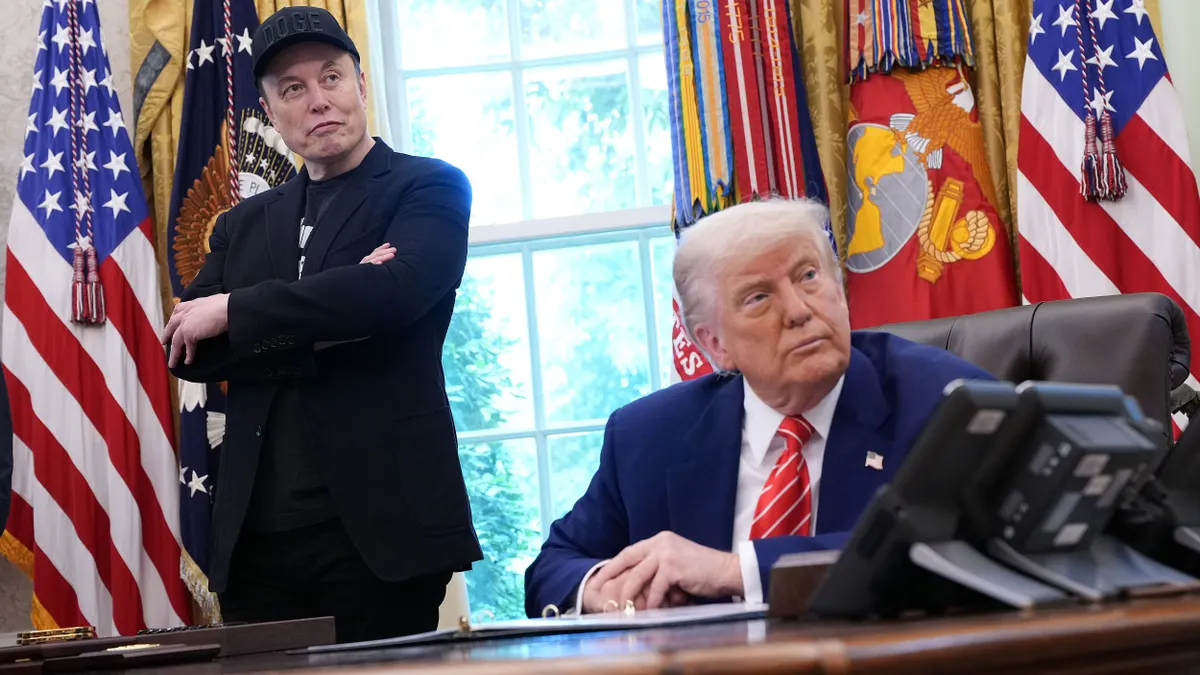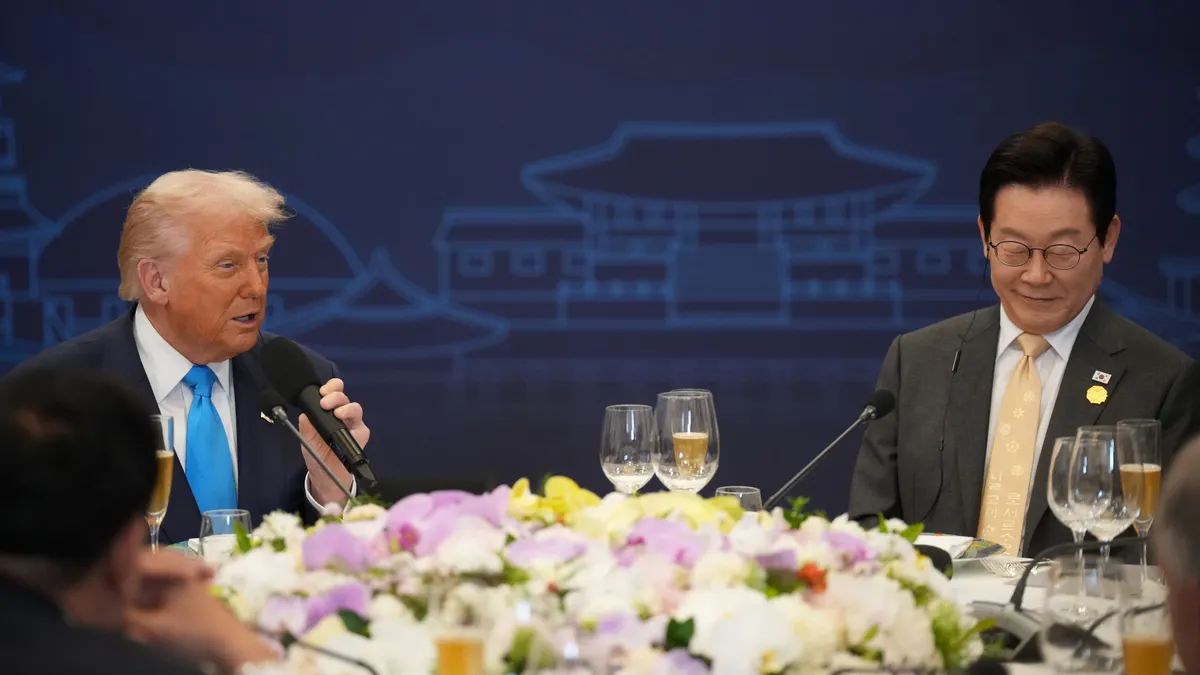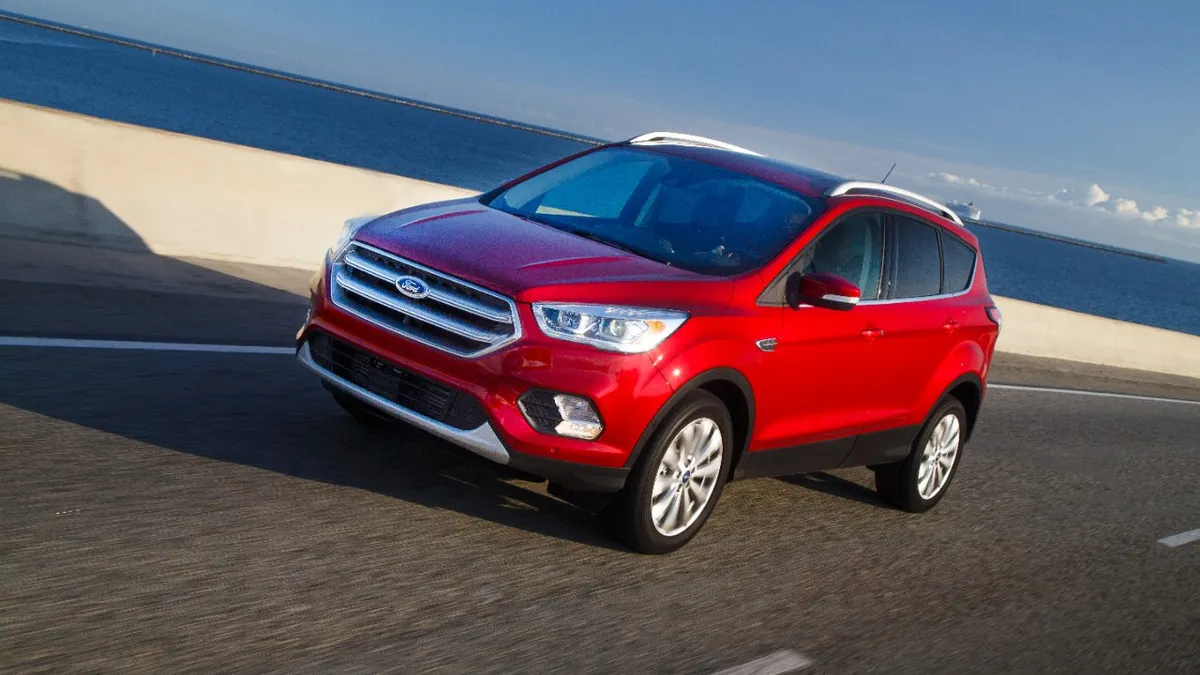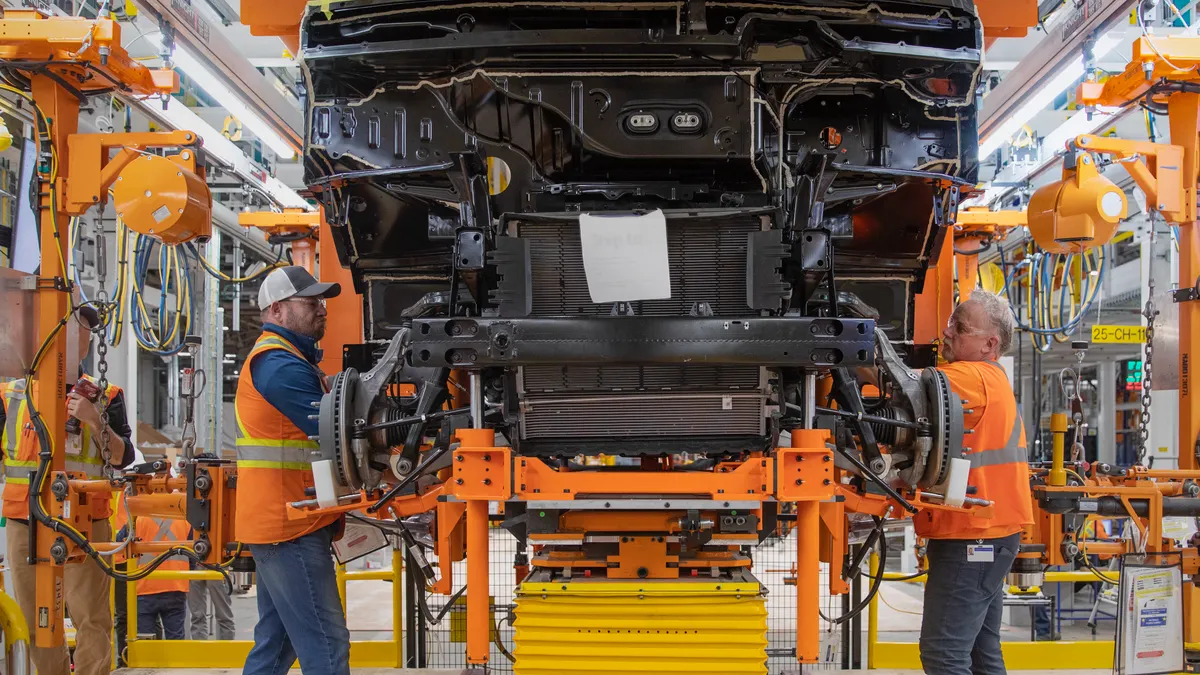Editor's note: This story is part of the WardsAuto digital archive, which may include content that was first published in print, or in different web layouts.
TAIPEI, Taiwan – Eric Wang understands this island nation’s place in the global automotive industry, and it’s not making cars.
Instead, Taiwanese companies can and should continue to be indispensable links in the supply chain, providing world-class parts and technologies at competitive prices, says the
general manager-sales and product marketing for Renesas, the world’s largest automotive semiconductor manufacturer. The company is based in Japan, but Wang works at Renesas offices here.
When people look at a BMW, they see German engineering. When they see a Cadillac, they think of American styling. At some point, Wang hopes people around the world will recognize Taiwanese technology, like the “Intel Inside” branding of microprocessors.
“From outside the car, you cannot see Taiwan. But Taiwan (technology) is inside,” Wang tells journalists visiting the recent EV Taiwan trade show here dedicated to electric vehicles.
“So we should understand the whole supply chain,” he says. “For Taiwanese companies, their goal is to be a very valuable part of the supply chain. They are trying to provide very good solutions, very good cost-efficient products, as suppliers.”
For years, Taiwan has been a reliable source of auto parts, and now the region is gearing up production of motors, batteries, controls, chargers, connectors and other components necessary for the nascent EV industry. As many as 150 Taiwanese companies are active in the EV sector.
Some companies here are producing battery-driven cars and commercial vehicles for emerging markets and, if a domestic charging infrastructure can be installed, for Taiwan.
Cost is a significant barrier for both the government and consumers. Conventional cars are extremely expensive in Taiwan, and EVs will be even moreso.
As a result, scooters are popular. There are about 11 million on this island of 23 million people. Nearly all of the scooters run with gasoline engines, but several local companies are trying to attract consumers to electric scooters.
Go-Tech Energy on the Go
One of those companies is Go-Tech Energy, which makes battery-management systems and battery packs for electric scooters, motorcycles and bikes.
Some of its batteries are used in electric scooters available for lease in southern Taiwan in a pilot program. But most of Go-Tech’s batteries can be found in Philippine tricycles, German and Polish scooters and small cargo vehicles.
“The demand here is still quite conservative,” David Chang, senior sales director at Go-Tech, says of the domestic market. “People are still looking at cheap gasoline. They are waiting for the government to offer more subsidies.”
The supplier sold about 3,000 battery packs last year, but Chang says volumes are expected to double this year, and growth will continue next year.
In 2016, he expects additional government incentives and greater environmental awareness will drive growth not only for electric scooters but cars as well.
Go-Tech is in talks with a European maker of EVs for a potential battery contract. “Three years from now, we hope to have that business, when the market gets mature,” Chang says.
Worldwide, several battery manufacturers have gone bankrupt waiting for the EV market to take off. Without a change in consumer preferences, batteries will remain expensive, says Dennis Soong, also a senior sales director at Go-Tech.
“So you cannot directly compete with the gasoline motorcycles or gasoline cars,” Soong says. “Right now, it’s more about programs coming like car sharing. When you use a car, you pay. Don’t use, don’t pay. A lot of progress can come from this.”
Fukuta Aligned With Tesla
Electric motors are a vital cog in the EV market, and local companies such as Tatung, Teco and Fukuta have invested for the long haul, shipping much of their product overseas.
For now, Fukuta is the sole supplier of motors for Tesla’s California-built Model S, the darling of luxury EVs. Tesla founder Elon Musk has said the company will begin manufacturing EVs in China within four years.
Like other suppliers, Fukuta derives most of its revenue marketing other higher-volume products – namely industrial motors.
Tesla came to Fukuta in 2005 seeking a partner to produce electric motors after Tatung and Teco declined the opportunity, says Gordon Chang, Fukuta general manager.
“They started looking at smaller companies like Fukuta,” he says through an interpreter. “And I said, ‘Yes, this is a new thing and I am interested in trying it. It’s our honor to do that.’”
As Tesla continues growing its lineup to include the upcoming Model X CUV and Model E small sedan, Fukuta realizes a second source of motors will be inevitable.
“We think this year they will have to find a second source because they also hope to ramp up very quickly,” says Doris Lu, Fukuta spokeswoman. “They need to make money.”
The supplier sold Tesla 30,000 motors in 2013 and plans to deliver another 45,000 this year, Lu says. Fukuta recently opened a new plant in Taiwan dedicated to Tesla business. Motors or components are shipped weekly to California, a journey that takes up to six weeks.
Renesas Recovers From Tsunami
The supply chain can accommodate built-in delays associated with oceangoing vessels. But natural disasters can be overwhelming.
When an earthquake and tsunami struck Japan in March 2011, Renesas was operating its most-advanced semiconductor plant near the epicenter, in Nankai. The facility was damaged badly and shut down for several months. Automotive customers found chips wherever they could.
“I remember I was in Japan at the time,” Wang says. “Very frankly, it was a big disaster for Renesas, but we also learned lots from that tsunami.”
It took more than nine months to repair the plant and bring it back up to running speed, he says.
In the aftermath, the supplier took several steps to avoid future catastrophes, such as building in new flexibility so important products now can be manufactured in multiple locations. And some chips now can be outsourced quickly in case of a problem.
“We visited all our key customers to explain our strategy and how we recovered,” Wang says. “Right now, our automotive business is much recovered.”
Indeed, Renesas remains the auto industry’s No.1 semiconductor supplier, reporting automotive revenues of nearly $3 billion in 2013. That gives the company a $500 million lead over second-place rival Infineon, according to IHS research.
Renesas produces millions of semiconductors a year for infotainment, body electronics and safety systems and now wants a piece of the EV market, as well.
“From an environmental viewpoint, it’s very important,” Wang says. “We check in with carmakers to find out what is their opinion. Based on their opinion, it is very important to make the EV more popular or mature.”
That means Renesas will be researching ways to make battery controls and motor controls more efficient and less expensive.
And the supplier is eager to be in the scooter market, in Taiwan and elsewhere. For one particular electric scooter, Renesas provides three different microcontrollers for the dashboard, battery and motor.
On the car side, a well-known European luxury brand is using Renesas chips to drive a high-definition display on the instrument panel.
“The solution is from Taiwan; the control is Renesas inside,” Wang says proudly.





















